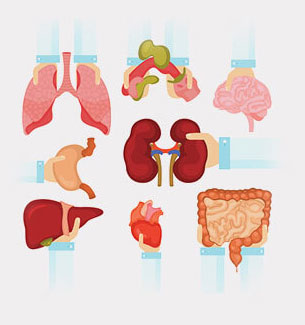
At SUHRC, we proudly employ a multidisciplinary approach to patient care, harnessing the immense talent and extensive resources of our distinguished academic medical and research center. Our dedicated Comprehensive Organ Transplant Center is committed to delivering cutting-edge and clinically effective treatments to both adults and children, for whom transplantation stands as the optimal or, in many cases, the sole solution. Our team comprises highly-trained specialists who, supported by state-of-the-art facilities and advanced technology, seamlessly orchestrate fully integrated surgeries for kidney and other vital organ transplants. We are unwaveringly devoted to providing unparalleled care, combining medical expertise with innovative solutions to ensure the best outcomes for our patients.

Welcome to the Kidney Transplant Center at SUHRC, where our commitment to excellence in patient care is matched only by our dedication to advancing medical frontiers. Our approach is characterized by a multidisciplinary collaboration that taps into the extensive talent and resources of our esteemed academic medical and research center.
Our Comprehensive Kidney Transplant Program stands as a beacon of hope for both adults and children for whom kidney transplantation represents the optimal or, in many cases, the only viable solution. We understand the unique challenges and complexities associated with kidney transplantation, and our team of highly-trained specialists is here to guide patients through every step of their journey.
Our specialists, equipped with the latest advancements in medical science and technology, operate within state-of-the-art facilities. This enables us to provide sophisticated and clinically effective treatments tailored to each patient's individual needs. The integration of cutting-edge surgical techniques and personalized care plans ensures that our patients receive the highest standard of medical attention.
At the heart of our Kidney Transplant Center is a commitment to comprehensive and compassionate care. We recognize that kidney transplantation is not just a medical procedure but a transformative journey for our patients and their families. Our team takes a holistic approach, addressing not only the physical aspects of transplantation but also the emotional and psychological well-being of our patients.
Furthermore, our center serves as a hub for research and innovation in the field of kidney transplantation. We actively contribute to advancements that enhance transplant outcomes and improve long-term patient quality of life. Through a continuous pursuit of knowledge and innovation, we strive to push the boundaries of what is possible in kidney transplantation.
Choosing SUHRC means choosing a center where expertise, technology, and compassion converge to provide unparalleled kidney transplant care. We stand with our patients, offering not only a medical solution but a pathway to a renewed and healthier life. Join us in this journey towards a future where kidney transplantation transforms lives and defines new standards in medical excellence.

A cornea transplant, or keratoplasty, is a surgical procedure that replaces damaged cornea tissue with healthy tissue from a donor, restoring vision, reducing pain, and improving the appearance of a diseased cornea. There are different types of cornea transplants: Penetrating Keratoplasty (full- thickness transplant), Endothelial Keratoplasty (focusing on the innermost layer), and Anterior Lamellar Keratoplasty (transplanting only the front and middle layers). Candidates for cornea transplants typically have conditions such as keratoconus, cornea scarring, edema, ulcers, or genetic disorders like Fuchs' dystrophy.
The procedure involves a comprehensive eye exam, removal of the damaged cornea, and stitching the donor cornea in place, usually under local anesthesia. Recovery can take weeks to months, requiring diligent use of prescribed eye drops and regular follow-ups to monitor healing. While cornea transplants offer significant benefits like improved vision and pain relief, there are risks including rejection, infection, and glaucoma.